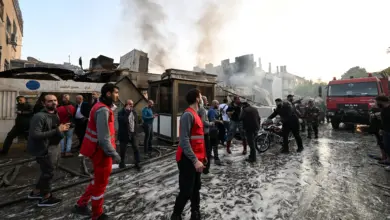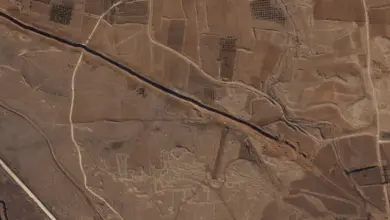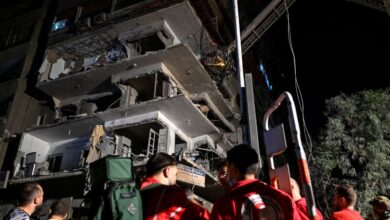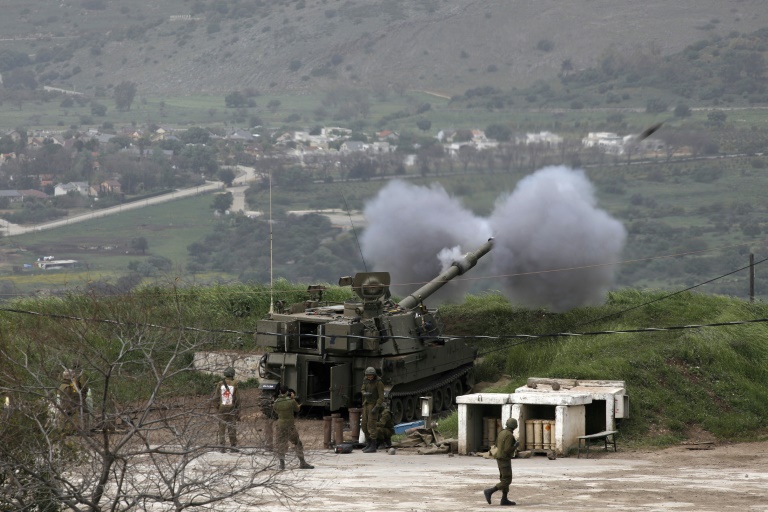Deraa, Syria — Hundreds of people marched in southern Syria for a fifth straight day on Tuesday, protesting against the government of President Bashar al-Assad and shouting "Freedom, freedom. Peaceful, peaceful."
Protesters gathered near the Old Omari mosque in Deraa and in the nearby town of Nawa in the strategic Hauran plateau, close to the border with Jordan, catching a wave of Arab unrest that has toppled leaders in Tunisia and Egypt.
"We want bread, but also freedom," said a resident of Deraa, where wheat yields fell by a quarter last year due to a drought that has hit the rest of the country of 20 million people.
Security forces killed four protesters when the demonstrations erupted in Deraa on Friday, and an 11-year-old child died after inhaling tear gas.
On Tuesday authorities arrested a leading campaigner who had supported the protesters, the Syrian Observatory for Human Rights said. Loay Hussein, a political prisoner from 1984 to 1991, was taken from his home in the Sehnaya district near Damascus, the independent rights group said in a statement.
"His house was broken into. The door was smashed. His fate is unknown," the group's statement said.
ASSAD'S SECRET POLICE
Vice President Farouq al-Shara said on Tuesday that Assad was committed to "continue the path of reform and modernization in Syria," Lebanon's al-Manar Television reported, adding he "cannot be against any Syrian citizen." It gave no details.
In Geneva, the United Nations Office for Human Rights said the authorities "need to put an immediate halt to the excessive use of force against peaceful protesters, especially the use of live ammunition."
A main demand of the protesters is an end to what they term repression by the secret police, which is headed in Deraa province by a cousin of Assad, who faces the biggest challenge to his rule since succeeding his father Hafez al-Assad in 2000.
Syria has been under emergency law since the Baath Party took power in a 1963, banning any opposition and ushering in decades of economic retreat characterized by nationalization.
Limited economic liberalization in the last decade has been marked by the rise of Rami Makhlouf, another cousin of Assad, as a business tycoon controlling key companies.
Makhlouf, who is under US sanctions for what Washington deems public corruption, has been a target of protesters' wrath. They describe him as a "thief." The tycoon says he is a legitimate businessman helping bring economic progress to Syria.
Assad has ignored rising demands to end emergency law, curb its pervasive security apparatus, develop the rule of law, free thousands of political prisoners, allow freedom of expression, and reveal the fate of tens of thousands of dissenters who disappeared in the 1980s.
"The revolution is at the door and the regime is still flirting with change," said Haitham al-Maleh, an 80-year-old lawyer and former judge who has spent his life peacefully resisting the ruling Baath Party's monopoly on power.
The protests have demanded freedom and an end to corruption and repression, but not the overthrow of Assad. The authorities appeared to adopt less heavy-handed tactics on Tuesday, choosing not to intervene against protesters, although activists said hundreds have been arrested across Syria in the last week.




